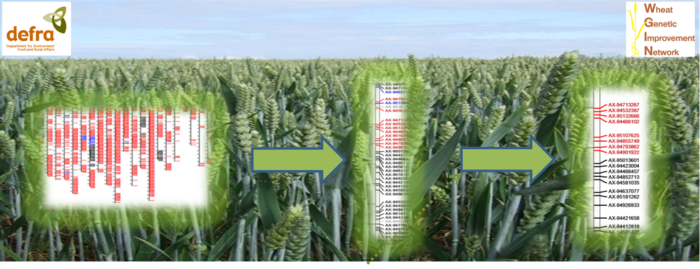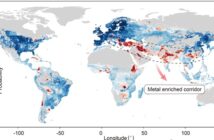Wheat innovators come together again this month to share news of their latest research and developments and to stimulate more new areas of investigation that will attract funders, breeders and the wider wheat industry for the benefit of farmers in the UK.
The Wheat Genetic Improvement Network (WGIN), Europe’s longest running research network of any sort, is staging its 15th annual stakeholders’ meeting at Rothamsted Research on 30thNovember. The meeting will also introduce a new five-year programme, Designing Future Wheat. Attendance at the day-long event is free upon registration.
WGIN, funded by the Department for Environment, Food and Rural Affairs (Defra), was founded in 2003 by Peter Shewry and Kim Hammond-Kosack, two cereals specialists at Rothamsted, and by John Snape, a cereals specialist at the John Innes Centre (JIC).
WGIN is led by Rothamsted and continues to embrace a diverse range of academic scientists, industry-based breeders, researchers, development specialists and agricultural advisers as its stakeholders.
“While industry breeding programmes tend to focus on introducing new crop varieties with greater yields and improved quality, WGIN focuses on new traits with characteristics that should improve crop resilience and sustainability,” says Hammond-Kosack.
“We explore such factors as improved responses to abiotic and biotic stress, efficiencies in the use of nutrients and canopy architecture,” she adds.
“Also, WGIN provides a research platform for the delivery of tools, resources, bioinformatics information and expertise for the identification of naturally occurring genetic variation in new traits.”
After a welcome from Shewry, chair of the WGIN Stakeholders’ Forum, Hammond-Kosack’s introduction to WGIN is followed by a series of presentations ranging from the value of drones and coping with drought in the UK to wheat without aphids and the WGIN Big Data Experiment.
The morning session concludes with a whistle-stop tour of the global wheat market from the Agriculture and Horticulture Development Board (AHDB).
Afternoon presentations focus on Designing Future Wheat (DFW), a new five-year programme to 2022 that is funded by the Biotechnology and Biological Sciences Research Council (BBSRC). Ten presentations cover breeding, genetics, architecture, weather-proofing, quality and Septoria disease.
More than 25 groups of scientists are involved in the DFW programme across Rothamsted, JIC and Earlham Institute (EI), with additional contributions from the National Institute of Agricultural Botany (NIAB), the European Bioinformatics Institute (EBI), the Quadram Institute and the Universities of Bristol and Nottingham.
The day will end with a Q&A session on the DFW programme and on WGIN in general, followed by another break for refreshments and informal discussions among delegates. The meeting closes at 5.30pm.




